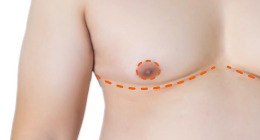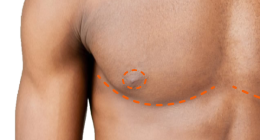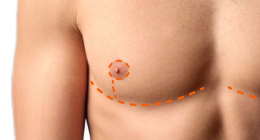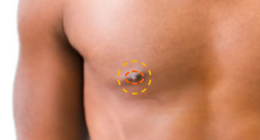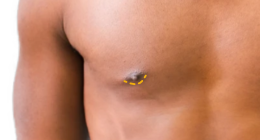Sponsored Article
How To Get Started With Top Surgery
Does this sound like you? You've decided that you want to get Top Surgery and you're ready to move forward but you don't know where to start. No worries. Let's go through it one step at a time!
Top Surgery isn't something that you can just book within a couple of weeks—there's a process—and while that process can look a little different for each person there's a general order of things. If you have access to a gender clinic or have a trans-knowledgeable primary care provider, they may be able to streamline some of the process for you.
Get Started:
- Costs & Insurance
- Will I Need a Referral?
- Choosing a Surgeon
- Booking a Consultation
- Scheduling a Surgery Date
- Meeting Surgery Requirements
- Preparing for Surgery
Costs & Insurance
Paying Out-of-Pocket
The first thing you're probably thinking is, "How much is this going to cost?" You can get a general idea of how much Top Surgery costs out-of-pocket here.
Paying out-of-pocket is usually a much faster route to getting a surgery date. "Self-pay patients do not have to abide by insurance rules, so for that reason they generally have a quicker path to surgery," says Dr. Laurel Chandler, an experienced Top Surgery surgeon in Darien, CT. "They also don't have to wait for insurance to approve their surgery. For patients who are using insurance, once they are approved there is no difference in terms of getting scheduled."
If you're planning to pay for Top Surgery out-of-pocket but don't have enough savings, you'll want to investigate fundraising ideas such as how to increase your savings, applying for grants, and best practices for crowdfunding. Check out the TransGuys.com Comprehensive Guide to Surgery Fundraising for tips about how to raise money for Top Surgery.
Using Insurance
If you're planning to use insurance to pay for your Top Surgery, you'll need to find out if your insurance will in fact cover it. You can call your insurance company, state Medicaid program or Medicare representative but be aware that agents don't always have accurate information. Double-check everything in the full text of your health plan and look for exclusions and/or specific coverage language that includes transition-related care. Next, login to your insurance provider's portal or check your member handbook to find surgeons who are in-network with your plan.
Related: 3 Tips For Finding An In-network Provider
If you can't find an in-network provider, you'll need to utilize your out-of-network benefits. In this case, you would be responsible for covering the cost of surgery minus the portion covered by insurance. According to Dr. Chandler, most insurances cover about $2000-$2500 in this circumstance. If you think you'll have trouble coming up with the rest of the cost on your own, consider medical financing. You can find a list of medical financing companies here.
Depending on which surgeon you're working with, there may also be fees associated with insurance processing. Dr. Chandler's office includes a team dedicated to insurance and billing. This includes an Insurance Specialist who will submit all the needed information to your insurance company to verify benefits, submit a prior authorization, or work to obtain a letter of agreement, if needed. Dr. Chandler's Insurance Specialist is well-versed in handling the ins and outs of navigating insurance benefits and there's no extra fee to utilize this service.
Will I Need a Referral?
If you live in a country that has public health plans that cover Top Surgery, you'll probably need a referral from your primary care provider to a regional health organization or gender clinic.
Surgeons in the United States rarely require a referral but most will need a letter of support from a qualified mental health professional, per the the WPATH guidelines for standards of care. Furthermore, insurance companies often require a second letter from your Hormone Therapy prescriber. Most providers are familiar with the requirements for these letters, but Dr. Chandler provides a template on her website for reference.
Surgeons who operate under informed consent do not require a letter from a mental health professional. However, if you're using insurance you'll still need to submit one or two support letters to the insurance provider.
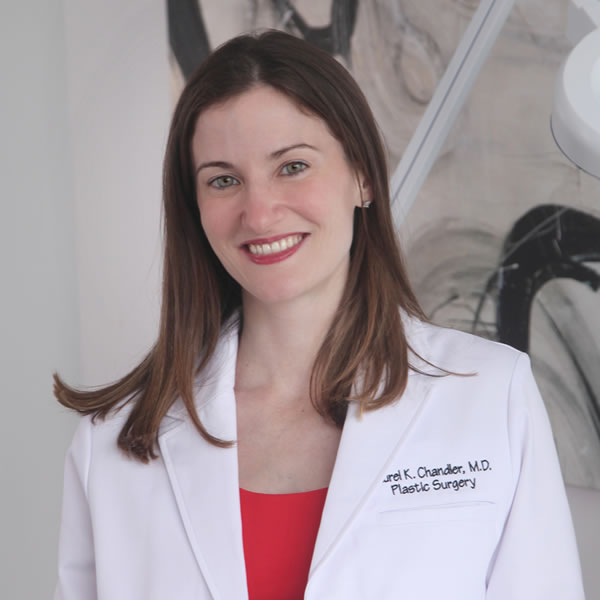
Dr. Laurel Chandler, MD is a Harvard fellowship-trained and board-certified plastic surgeon who has received specialty training in Top Surgery. Based in Fairfield County, Connecticut, Dr. Chandler provides personalized care for transmasc, transfem and nonbinary patients with a practice that is over 90% Top Surgery and gender-affirming Body Sculpting.
Choosing a Surgeon
When it comes to choosing a surgeon, those paying out-of-pocket generally have more options compared to those using insurance. Regardless of how you're paying for Top Surgery, it's highly recommended that you research your prospective surgeons carefully. Some important considerations:
Before/after photos are critical. Private practice surgeons often have before and after photo galleries on their websites so you can evaluate their techniques and get an idea of how your post-op chest might look. Surgeons who work at large medical centers typically do not post photos online but will be happy to show you photos at your consultation. If a surgeon is unwilling or unable to show you post-operative photos, consider this a red flag. This isn't something that you should just take someone's word on--this is your body. You can also find photos online at TransBucket.com and on Reddit.
Surgeon reviews offer social proof. They reflect patients' actual experiences with surgeons, as well as staff interactions. Reviews are subjective though so keep in mind that your experience may not match what you read in reviews. You can find Top Surgery surgeon reviews on Facebook, TransBucket.com and Reddit.
A surgeon's credentials shouldn't be overlooked. Medical credentials can be confusing. In this how-to guide, you'll find out how to empower your surgeon search with license and certification lookup tools and get clear answers about what board certification and other credentials really mean.
Location matters. While surgeon location isn't the strongest determining factor in choosing a surgeon, there are many benefits to working with a surgeon who is closer to home. That said, you may need to travel to find the best surgeon for you. If you do travel for Top Surgery, you'll need to factor in the added expense of travel and accommodations, for both yourself and your caretaker.
Length of wait list. Believe it or not, there are Top Surgery surgeons with wait lists that exceed two years. However, the length of a surgeon's wait list doesn't necessarily indicate their skill so don't assume that surgeons with shorter wait lists aren't good at what they do or that surgeons with longer wait lists are better. Private practice surgeons typically have shorter wait lists compared to surgeons employed by large medical centers. If you're prioritizing getting a surgery date as soon as possible, the length of a surgeon's wait list will factor heavily into your decision.
Booking a Consultation
Once you've selected a surgeon (or multiple surgeons) that you're interested in potentially working with, the next step is to book a consultation. Contact the surgeon's office by phone or through their website to find out when you could see them and what the consultation fee is. If you're paying out-of-pocket for surgery, the consultation fee is often applied to the final cost of your surgery if you go ahead with that surgeon. If using insurance, the fee is usually covered.
An in-person consultation may be required by your surgeon before your surgery date. However, many surgeons have embraced technology and are offering alternatives to the in-person consultation. Dr. Chandler offers virtual consultations and has an online portal where patients can upload photos. A preoperative in-person consultation with Dr. Chandler isn't required. "If they have a preoperative virtual consultation they will still need to have a physical examination by their primary care physician before surgery," says Dr. Chandler. "All patients have the option to have another virtual or in-person preoperative visit in addition to their consultation, if desired."
Don't Miss:
Scheduling a Surgery Date
If you "click" with the surgeon and you're ready to move forward, the next step is to book a surgery date. At Dr. Chandler's practice, patients paying out-of-pocket get a detailed quote and a surgery date on the day of their consultation. To schedule your surgery date, a deposit is required if you're paying out-of-pocket. Currently, Dr. Chandler requires a deposit of $515 to secure a surgery date ahead of time, with the balance paid about 4 weeks before surgery day. Surgeries can typically be booked within 4-5 months, depending on the time of year. "In the summer it is closer to 5 months and in the fall/winter closer to 4 months or sometimes earlier," says Dr. Chandler. The hospital collects their fees from patients separately.
If you're using insurance to pay for your Top Surgery, the process is different and depends on benefit coverage levels, deductibles, and out-of-pocket maximums, among other variables. Your surgeon's Insurance Specialist will be able to provide you with guidance to navigate this.
PRO TIP: If insurance coverage is denied, immediately begin the appeals process!
Meeting Surgery Requirements
At your consultation, the surgeon will speak with you about their requirements for surgery eligibility. These requirements vary surgeon-to-surgeon and if using insurance, your insurance provider will also have a set of requirements. In addition to the previously mentioned referral letter(s), requirements may include:
Body Mass Index (BMI) limits. Often this isn't actually the surgeon's requirement but a requirement of the surgery facility where they operate. The reasoning is that obesity can lengthen surgery and increase risk. In some surgeons' hands, being overweight can lead to a greater incidence of dog ears. However, studies have shown that obese patients have comparable outcomes as non-obese patients. Rather than rely on an arbitrary BMI number, specific factors that could affect outcomes should be considered, such as the presence of medical conditions that increase risk, like cardiovascular disease. Dr. Chandler has no BMI requirement.
Smoking cessation. If you smoke tobacco, your surgeon will ask you to stop smoking for a period of time before and after surgery. Smoking tobacco can complicate surgery and negatively affect results. The biggest issue with smoking tobacco is the nicotine, which is a vasoconstrictor. Vasoconstrictors decrease blood flow to the tissues, which can result in tissue death. In Double Incision Top Surgery, this can present as compromised or completely lost nipple grafts.
If you smoke cannabis, you might also be asked to stop before and after surgery. Like tobacco smoke, there is carbon monoxide in cannabis smoke. Carbon monoxide decreases the oxygen carrying capacity of hemoglobin in the blood, and like vasoconstriction, increases the risk of decreased blood flow and tissue death, as well as delayed wound healing and more scarring. Additionally, smokers have a more reactive airway (coughing, wheezing, shortness of breath) which can cause serious breathing problems during and after surgery. Cannabis can also have negative interactions with anesthetic drugs so it's vitally important to be honest and detailed with your surgeon and the anesthesiologist about your cannabis use. That said, there are therapeutic uses of cannabis after surgery, in the form of edibles and tinctures.
Pre-operative mammmogram. A normal baseline mammogram is typically required prior to Top Surgery for patients who are 40 years of age or older who don't have a family history of breast cancer, and for patients who are 35 years of age or older who do have a family history of breast cancer.
Medical evaluation and lab tests. Some surgeons require patients to have a general medical check-up and blood work done prior to the pre-operative appointment just to confirm that you are healthy enough to tolerate surgery.
PRO TIP: Testosterone is NOT required to have Top Surgery. If your insurance company requires HRT, know that there are ways around this. Check out this how-to guide on insurance coverage for Top Surgery in the United States for more information.
Preparing for Surgery
You've sorted out the finances, got your referral letters, chosen a surgeon and had a consultation, met their requirements for surgery, and now have a surgery date. Congratulations! Your big day will come up faster than you think and the time is right for getting ready for your surgery.
At this stage things can feel a bit overwhelming. To ease
with this, Dr. Chandler provides her patients with two
instructions packets: preoperative and postoperative. The
preoperative packet goes over the preoperative timeline, who to
contact when you have questions, how to schedule the pre- and
postoperative appointments, medications
to avoid, other preoperative considerations/things to avoid,
and what to do the night before and morning of surgery.
The postoperative packet goes over dressings and incision/nipple
care, medications, activity, and what to expect. Dr. Chandler also
provides patients with a number that they can text her at after
surgery with any concerns or questions, as well as the number that
goes to an answering service in case there is an issue with the
text system.
Other important logistical tasks to get done before surgery include:
Getting your post-op supplies ready. This handy checklist of medical supplies, convenience items, supplements and more will help you get organized for your recovery.
Making travel arrangements. If you're traveling any distance to your surgeon, you'll want to think about how you'll get there and back and where you'll stay.
Finding a caregiver. You'll need someone to accompany when you leave the surgery facility and they'll need to stay with you for a minimum of 24hrs.
Arranging time off from work or school. If you're in the USA, look into applying for FMLA (Family and Medical Leave Act).
Preparing your home/recovery space. Stock the kitchen with snacks and easy to make and/or pre-prepared meals and ensure that things that you'll need are within reach without having to lift your arms over your head. Tidy up so you won't be tripping on things.
Lastly, be sure to take some time for you. It's common to have a high degree of stress before surgery so it's really important to make sure that you take time for yourself and get lots of rest in the weeks leading up to your big day.
As you can see, there's a lot to organize to get Top Surgery and it can be daunting, but the work you put into getting there will be totally worth it.
Last updated: 04/11/25
